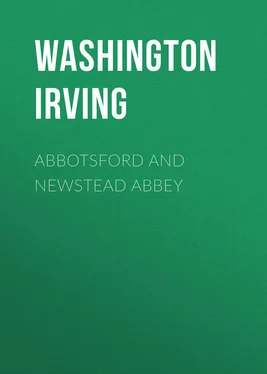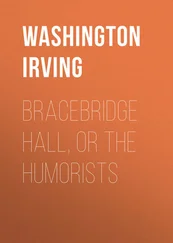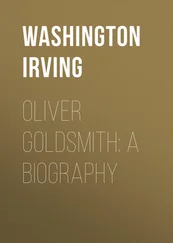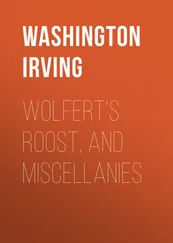Washington Irving - Abbotsford and Newstead Abbey
Здесь есть возможность читать онлайн «Washington Irving - Abbotsford and Newstead Abbey» — ознакомительный отрывок электронной книги совершенно бесплатно, а после прочтения отрывка купить полную версию. В некоторых случаях можно слушать аудио, скачать через торрент в формате fb2 и присутствует краткое содержание. Жанр: foreign_antique, foreign_prose, на английском языке. Описание произведения, (предисловие) а так же отзывы посетителей доступны на портале библиотеки ЛибКат.
- Название:Abbotsford and Newstead Abbey
- Автор:
- Жанр:
- Год:неизвестен
- ISBN:нет данных
- Рейтинг книги:3 / 5. Голосов: 1
-
Избранное:Добавить в избранное
- Отзывы:
-
Ваша оценка:
- 60
- 1
- 2
- 3
- 4
- 5
Abbotsford and Newstead Abbey: краткое содержание, описание и аннотация
Предлагаем к чтению аннотацию, описание, краткое содержание или предисловие (зависит от того, что написал сам автор книги «Abbotsford and Newstead Abbey»). Если вы не нашли необходимую информацию о книге — напишите в комментариях, мы постараемся отыскать её.
Abbotsford and Newstead Abbey — читать онлайн ознакомительный отрывок
Ниже представлен текст книги, разбитый по страницам. Система сохранения места последней прочитанной страницы, позволяет с удобством читать онлайн бесплатно книгу «Abbotsford and Newstead Abbey», без необходимости каждый раз заново искать на чём Вы остановились. Поставьте закладку, и сможете в любой момент перейти на страницу, на которой закончили чтение.
Интервал:
Закладка:
As yet, however, all was in embryo and perspective, and Scott pleased himself with picturing out his future residence, as he would one of the fanciful creations of his own romances. "It was one of his air castles," he said, "which he was reducing to solid stone and mortar." About the place were strewed various morsels from the ruins of Melrose Abbey, which were to be incorporated in his mansion. He had already constructed out of similar materials a kind of Gothic shrine over a spring, and had surmounted it by a small stone cross.
Among the relics from the Abbey which lay scattered before us, was a most quaint and antique little lion, either of red stone, or painted red, which hit my fancy. I forgot whose cognizance it was; but I shall never forget the delightful observations concerning old Melrose to which it accidentally gave rise. The Abbey was evidently a pile that called up all Scott's poetic and romantic feelings; and one to which he was enthusiastically attached by the most fanciful and delightful of his early associations. He spoke of it, I may say, with affection. "There is no telling," said he, "what treasures are hid in that glorious old pile. It is a famous place for antiquarian plunder; there are such rich bits of old time sculpture for the architect, and old time story for the poet. There is as rare picking in it as a Stilton cheese, and in the same taste – the mouldier the better."
He went on to mention circumstances of "mighty import" connected with the Abbey, which had never been touched, and which had even escaped the researches of Johnny Bower. The heart of Robert Bruce, the hero of Scotland, had been buried in it. He dwelt on the beautiful story of Bruce's pious and chivalrous request in his dying hour, that his heart might be carried to the Holy Land and placed in the Holy Sepulchre, in fulfilment of a vow of pilgrimage; and of the loyal expedition of Sir James Douglas to convey the glorious relic. Much might be made, he said, out of the adventures of Sir James in that adventurous age; of his fortunes in Spain, and his death in a crusade against the Moors; with the subsequent fortunes of the heart of Robert Bruce, until it was brought back to its native land, and enshrined within the holy walls of old Melrose.
As Scott sat on a stone talking in this way, and knocking with his staff against the little red lion which lay prostrate before him, his gray eyes twinkled beneath his shagged eyebrows; scenes, images, incidents, kept breaking upon his mind as he proceeded, mingled with touches of the mysterious and supernatural as connected with the heart of Bruce. It seemed as if a poem or romance were breaking vaguely on his imagination. That he subsequently contemplated something of the kind, as connected with this subject, and with his favorite ruin of Melrose, is evident from his introduction to "The Monastery;" and it is a pity that he never succeeded in following out these shadowy, but enthusiastic conceptions.
A summons to breakfast broke off our conversation, when I begged to recommend to Scott's attention my friend the little red lion, who had led to such an interesting topic, and hoped he might receive some niche or station in the future castle, worthy of his evident antiquity and apparent dignity. Scott assured me, with comic gravity, that the valiant little lion should be most honorably entertained; I hope, therefore, that he still flourishes at Abbotsford.
Before dismissing the theme of the relics from the Abbey, I will mention another, illustrative of Scott's varied humors. This was a human skull, which had probably belonged of yore to one of those jovial friars, so honorably mentioned in the old border ballad:
"O the monks of Melrose made gude kale
On Fridays, when they fasted;
They wanted neither beef nor ale,
As long as their neighbors lasted."
This skull he had caused to be cleaned and varnished, and placed it on a chest of drawers in his chamber, immediately opposite his bed; where I have seen it, grinning most dismally. It was an object of great awe and horror to the superstitious housemaids; and Scott used to amuse himself with their apprehensions. Sometimes, in changing his dress, he would leave his neck-cloth coiled round it like a turban, and none of the "lasses" dared to remove it. It was a matter of great wonder and speculation among them that the laird should have such an "awsome fancy for an auld girning skull."
At breakfast that morning Scott gave an amusing account of a little Highlander called Campbell of the North, who had a lawsuit of many years' standing with a nobleman in his neighborhood about the boundaries of their estates. It was the leading object of the little man's life; the running theme of all his conversations; he used to detail all the circumstances at full length to everybody he met, and, to aid him in his description of the premises, and make his story "mair preceese," he had a great map made of his estate, a huge roll several feet long, which he used to carry about on his shoulder. Campbell was a long-bodied, but short and bandy-legged little man, always clad in the Highland garb; and as he went about with this great roll on his shoulder, and his little legs curving like a pair of parentheses below his kilt, he was an odd figure to behold. He was like little David shouldering the spear of Goliath, which was "like unto a weaver's beam."
Whenever sheep-shearing was over, Campbell used to set out for Edinburgh to attend to his lawsuit. At the inns he paid double for all his meals and his night's lodgings, telling the landlords to keep it in mind until his return, so that he might come back that way at free cost; for he knew, he said, that he would spend all his money among the lawyers at Edinburgh, so he thought it best to secure a retreat home again.
On one of his visits he called upon his lawyer, but was told he was not at home, but his lady was. "It's just the same thing," said little Campbell. On being shown into the parlor, he unrolled his map, stated his case at full length, and, having gone through with his story, gave her the customary fee. She would have declined it, but he insisted on her taking it. "I ha' had just as much pleasure," said he, "in telling the whole tale to you, as I should have had in telling it to your husband, and I believe full as much profit."
The last time he saw Scott, he told him he believed he and the laird were near a settlement, as they agreed to within a few miles of the boundary. If I recollect right, Scott added that he advised the little man to consign his cause and his map to the care of "Slow Willie Mowbray," of tedious memory, an Edinburgh worthy, much employed by the country people, for he tired out everybody in office by repeated visits and drawling, endless prolixity, and gained every suit by dint of boring.
These little stories and anecdotes, which abounded in Scott's conversation, rose naturally out of the subject, arid were perfectly unforced; though, in thus relating them in a detached way, without the observations or circumstances which led to them, and which have passed from my recollection, they want their setting to give them proper relief. They will serve, however, to show the natural play of his mind, in its familiar moods, and its fecundity in graphic and characteristic detail.
His daughter Sophia and his son Charles were those of his family who seemed most to feel and understand his humors, and to take delight in his conversation. Mrs. Scott did not always pay the same attention, and would now and then make a casual remark which would operate a little like a damper. Thus, one morning at breakfast, when Dominie Thomson, the tutor, was present, Scott was going on with great glee to relate an anecdote of the laird of Macnab, "who, poor fellow," premised he, "is dead and gone – " "Why, Mr. Scott," exclaimed the good lady, "Macnab's not dead, is he?" "Faith, my dear," replied Scott, with humorous gravity, "if he's not dead they've done him great injustice – for they've buried him."
Читать дальшеИнтервал:
Закладка:
Похожие книги на «Abbotsford and Newstead Abbey»
Представляем Вашему вниманию похожие книги на «Abbotsford and Newstead Abbey» списком для выбора. Мы отобрали схожую по названию и смыслу литературу в надежде предоставить читателям больше вариантов отыскать новые, интересные, ещё непрочитанные произведения.
Обсуждение, отзывы о книге «Abbotsford and Newstead Abbey» и просто собственные мнения читателей. Оставьте ваши комментарии, напишите, что Вы думаете о произведении, его смысле или главных героях. Укажите что конкретно понравилось, а что нет, и почему Вы так считаете.












